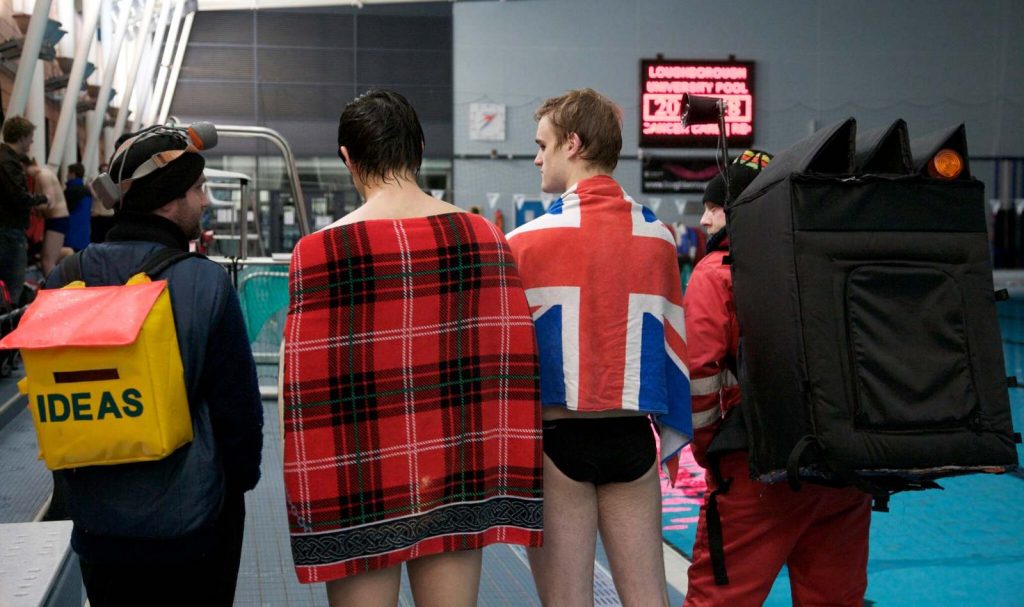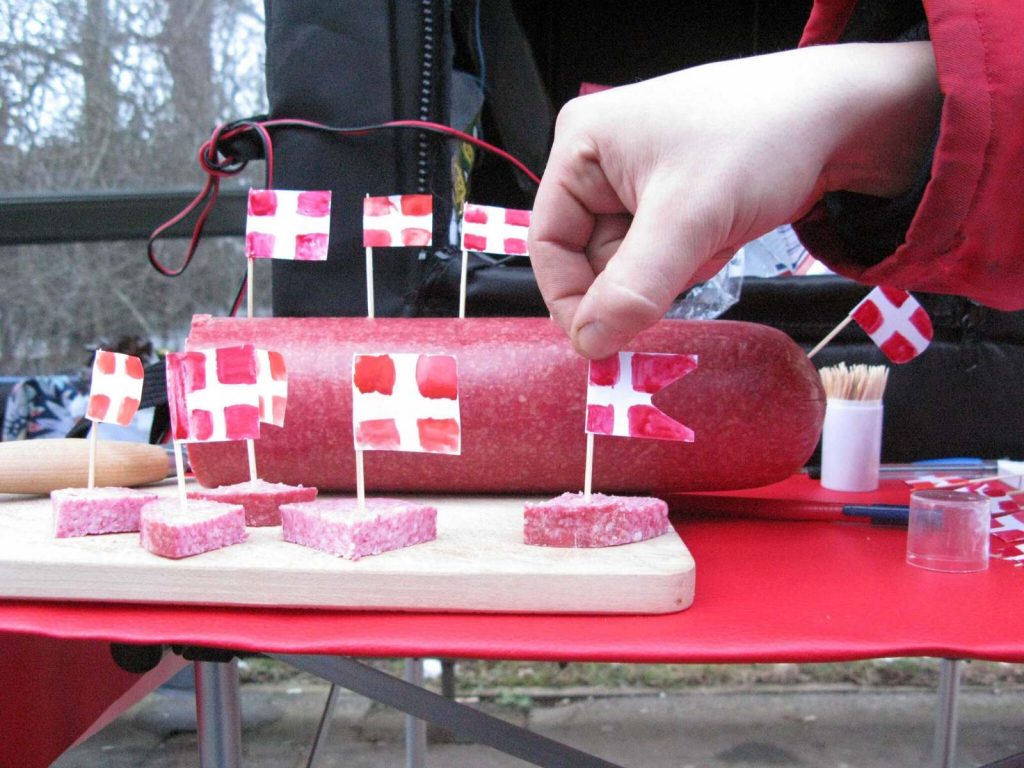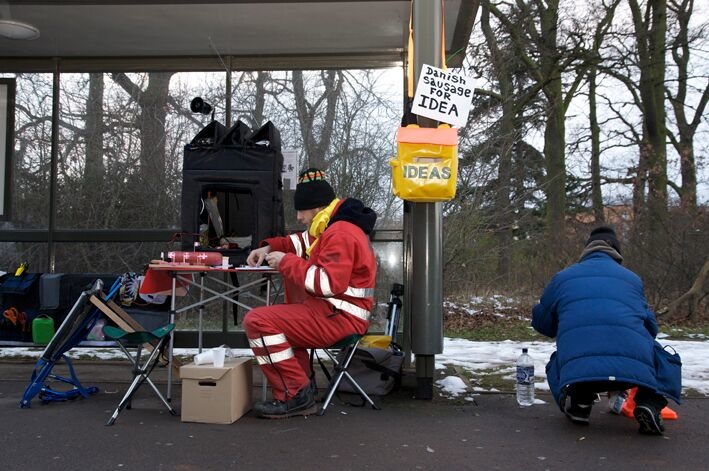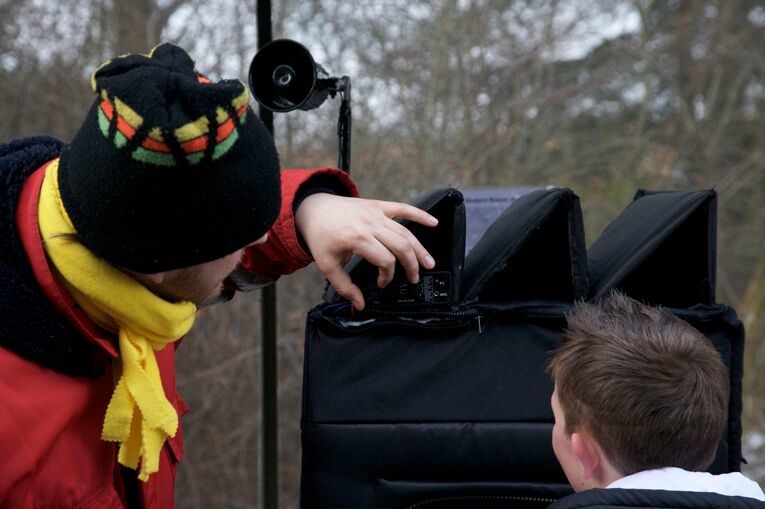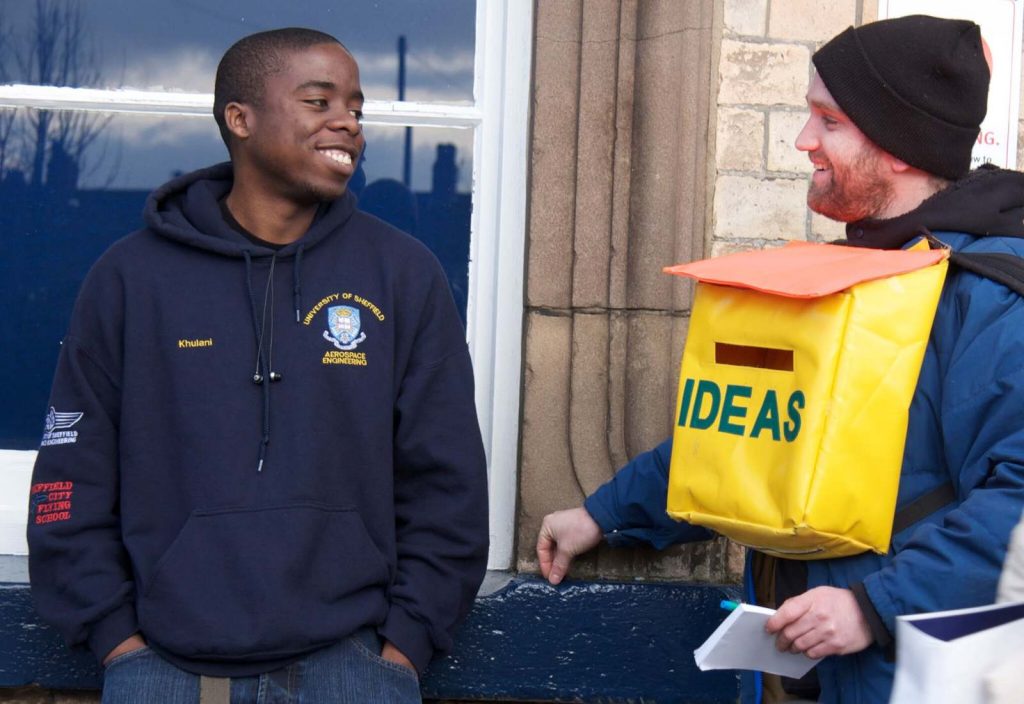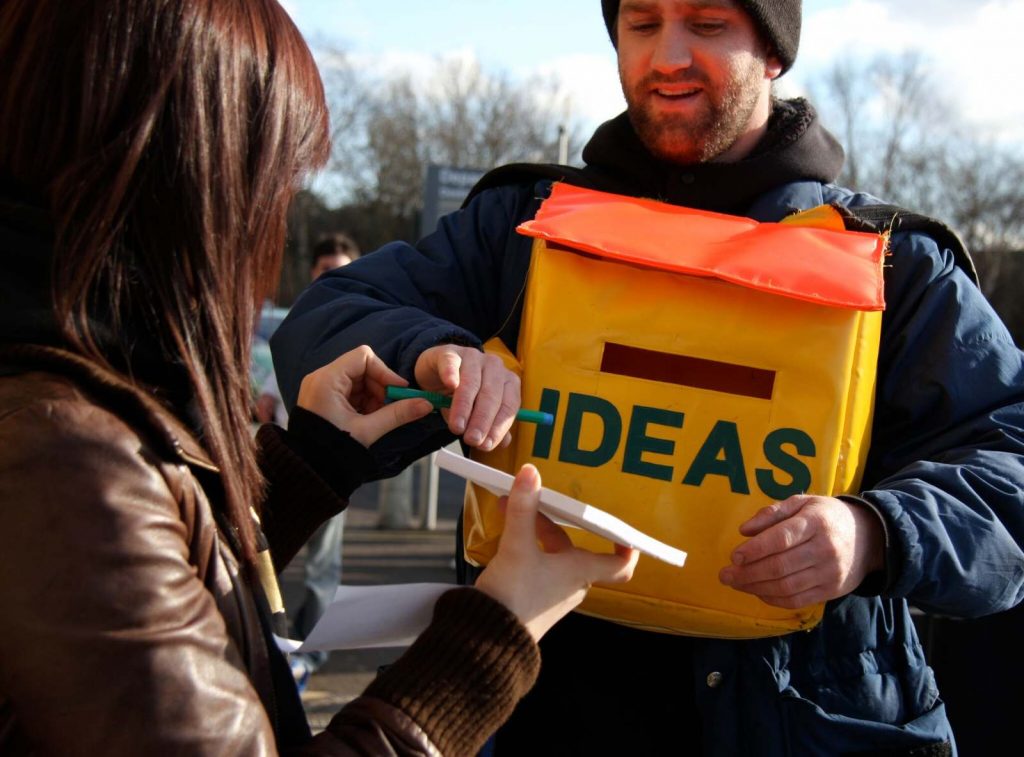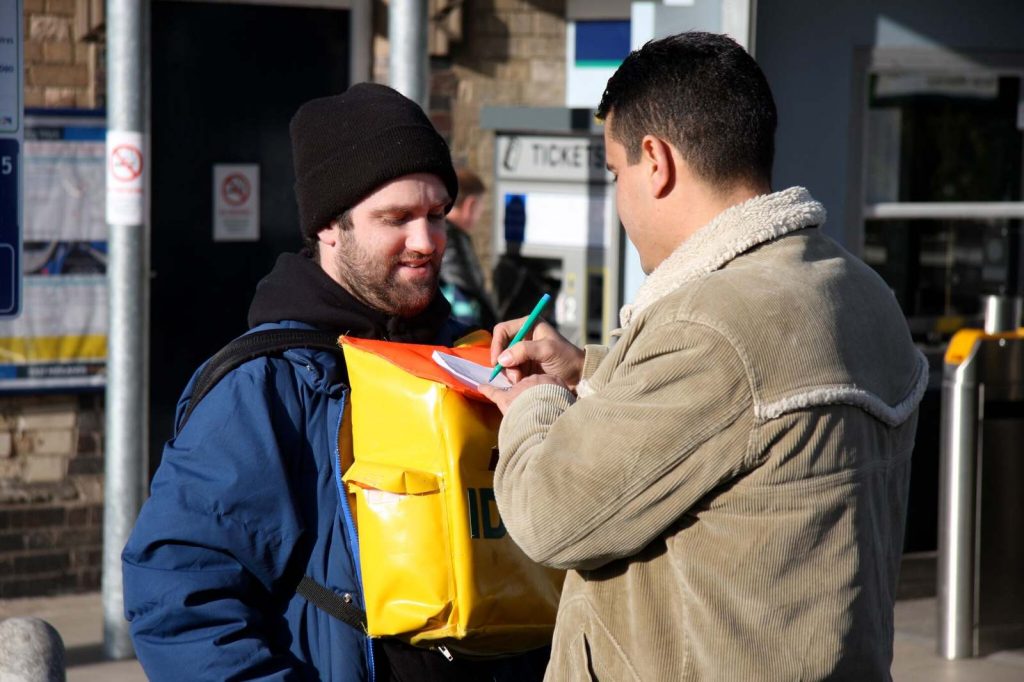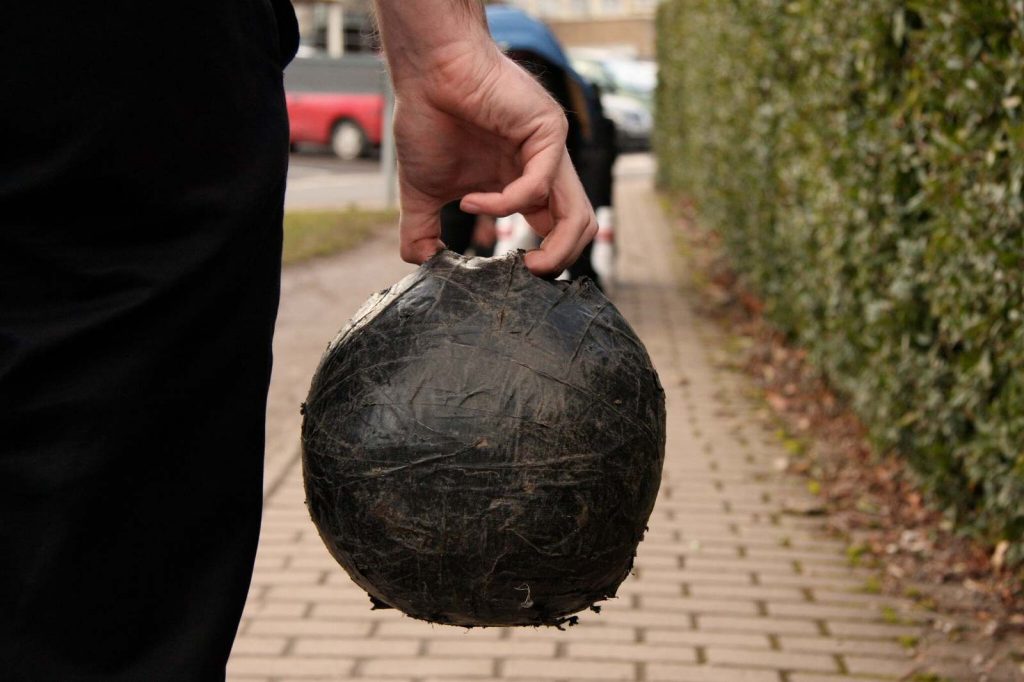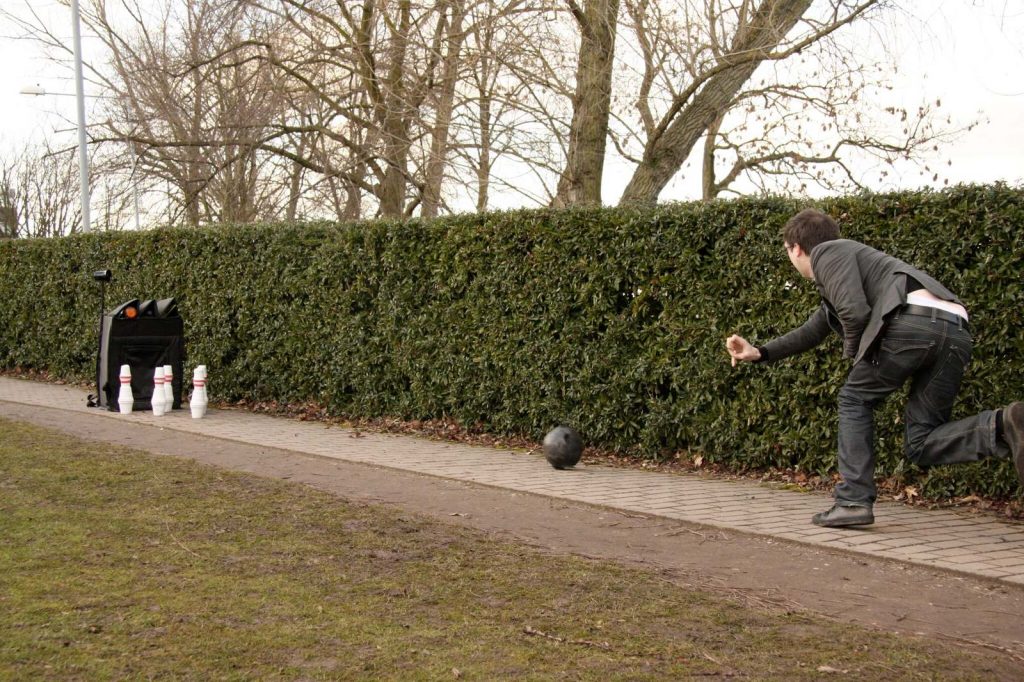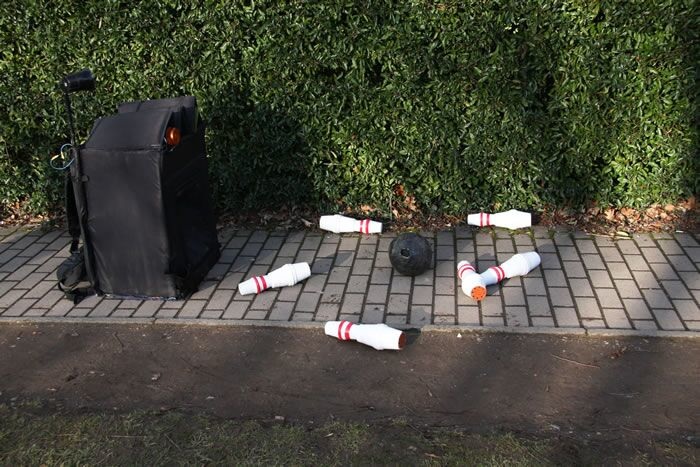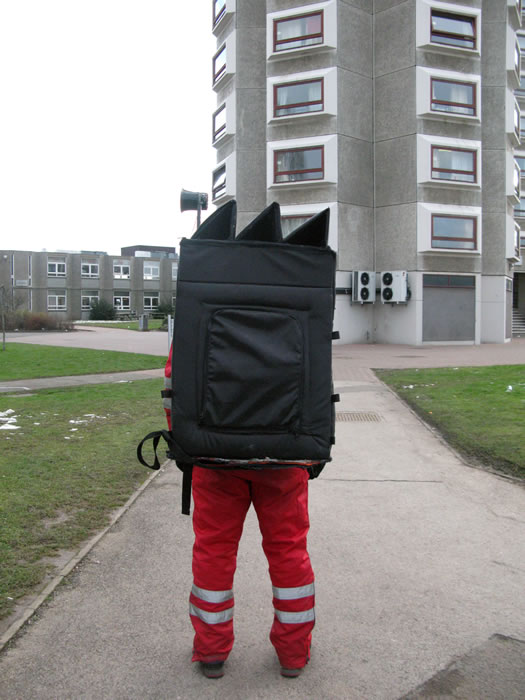Equipped with a rucksack of apparatus, we created a moving, touring factory. Reminiscent of the old type of travelling salesman, carrying his product for the world to see.
At the university of Loughborough we followed the market. Collected the student’s ideas and manufactured them. Some students had a wish of outdoor bowling at campus. The Backpack Factory made it happen.
In collaboration with Laurids Sonne. Listed as Parfyme.
RADAR
Feb. 2009, Loughborough, England
Curated by Nick Slater
Q & A with Nick Slater
How do you collaborate with your participant?
We would like to think of our work being part of a big messy conundrum. Our world. This is the condition and awareness we are working in as we are confronted with everyday problems and beautiful possibilities. We aim to explore the possibilities within socially constructed structures: the state, money, social groupings, universities…
What do you want to get out of this relationship?
Meeting the people who are intertwined in these structures is always fun, who are these people? This is why we always seek interaction between people, to develop relationships – the social structures (must) have a human face.
When we interact with people it is most often in a very immediate way, since we are physically present in our work. It starts out with a general conversation, people often ask what we are doing and that interest might lead to further conversation. Maybe we offer coffee.
Sometimes it might be a more direct procedure where we ask passers-by for help – ask them to redevelop the specific thing we are doing, like we did in Loughborough with the Backpack Factory. It is important for us to be open to people and to put ourselves a bit on the line, trying to contest mental barriers of what is possible. By moving our own private lives and activities outside, hopefully we can challenge the perceptions of what the public space can be used for.
With The Backpack Factory we wanted to investigate the public spheres around the campus of Loughborough University. The students, the administration, the pizza vendor should be heard! We confronted Loughborough University with our factory and its possibilities to change, serve and collaborate with the institution.
The students wanted more entertainment, cleaner toilets, cheaper beer … In other words, no radical claims. So we tried our best to work it out.
Addressing the demands to the university administration has a more or less obvious outcome. But nevertheless lets try. It’s funny when the employees suggest that we get a real commission for putting up an art piece, a sculpture, when we say that we would like to build a small shed for storing the bowling game. There are systems and ways to go around. Or it is simply illegal. And it is definitely not allowed to clean the toilets if we don’t have insurance.
We learned that student initiatives have a hard time as the bureaucratic structure entails a year span of hearings, estimations and so forth, and when a project of some kind finally can get under way the specific students that got an “idea” has long left to pursue a life outside of campus.
What do you hope they will get out of this relationship?
We are interested in a platform where it is not about finding the perfect solution, which we don’t believe exists anyway. Instead, we want to create situations where different things can happen, situations that could work in reality and be more than an example.
In our half-year long project, The Harbor Laboratory, we opened up the thought of having an area in the middle of the Copenhagen harbor where everyone could be part of the development and explore the potential of the harbor. One could start out by borrowing a paddle boat for free and think about it. People often need to sniff a bit before they let the bag of ideas rip. Paddle boats are great for sniffing, and for seeing the harbor.
The Harbor Laboratory got a lot of time compared to the two weeks we “walked” around Loughborough. To have and give time is important.
Do you want to be in control?
We doubt a lot, and we think that is good. Interacting with other people is as much a question of us being affected by others. We don’t posses any uniform divine “truth”, but hopefully we can affect others as they affect us.
There is an interesting relationship between control and dynamics in situations of action. Too much control seems to limit any dynamic, but too little might limit it as well. As we’re constantly working with the dynamics of such situations, for example building something in the street, we think a lot about control.
Is there always something to show from the relationship?
There is always a story to tell. Success and failure are equally important, especially from a learning perspective. It is a goal for the future to have our work implemented further in society, so it will be less about showing examples. We see art as a tool. Not as a traveling fair.
